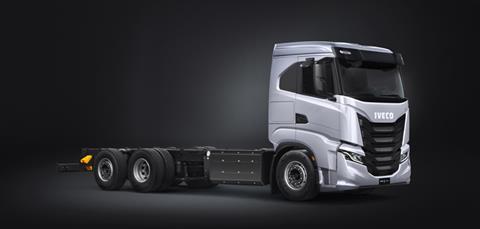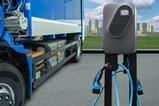EMPOWER, a European research project, was recently launched. The AIT (Austrian Institute of Technology) will conduct research in a world-class collaboration over the next three years to produce two flexible, modular, and scalable emission-free heavy-duty vehicles weighing 40 tonnes or more. Both trucks are powered by an electric motor. Although one vehicle’s electrical energy is generated by a fuel cell system and the other is powered simply by a battery.

The EMPOWER project is short for Eco-operated, Modular, and flexible multi-POWERtrain for long-haul heavy-duty vehicles, with a budget of €18 mn. The project aims to develop two heavy-duty electric vehicles, one powered by hydrogen and the other powered solely by a battery, with ranges of 750 km and 400 km, respectively. Once developed, the vehicles must demonstrate their driving range and performance in five long-haul and regional distribution use cases, including cross-border corridors between European member states.
Modularity is a critical requirement of the project, with the vehicle, its high and low-voltage architecture, and the energy storage all expected to be modular. The fuel cell system must have high reliability and an extended operational lifetime, while the drive axle must be geared for efficiency. There are also requirements for a new Human Vehicle Interface for optimised control of the vehicle systems, Vehicle-to-Grid communication, eco-routing, fleet management, life cycle analysis, total cost of operation assessment, and green hydrogen infrastructure.
The AIT is responsible for developing digital twin models for the simulative design and impact assessment of the measures to be implemented. The Institute will also implement a thermal management system by integrating key components of the truck, such as fuel cells, batteries, power electronics, and the electric machine. The planned air conditioning concept uses the heat of the cabin waste air to either pre-cool or pre-heat the freshly supplied air. The additional integration of infrared panels is expected to reduce the energy demand for heating/cooling by up to 70% (especially at transition temperatures around +10 °C).
The project partners include IVECO and Air Liquide, which will likely take on the H2 infrastructure, FPT Motorenforschung AG, IFP Énergies nouvelles, Politecnico di Torino, Istituto per Innovazioni tecnologiche Bolzano, Lead Tech, Villinger GmbH, Fundación CIDETEC, CT Engineering GmbH, Gruber Logistics, and Brembo, a brake specialist.


















